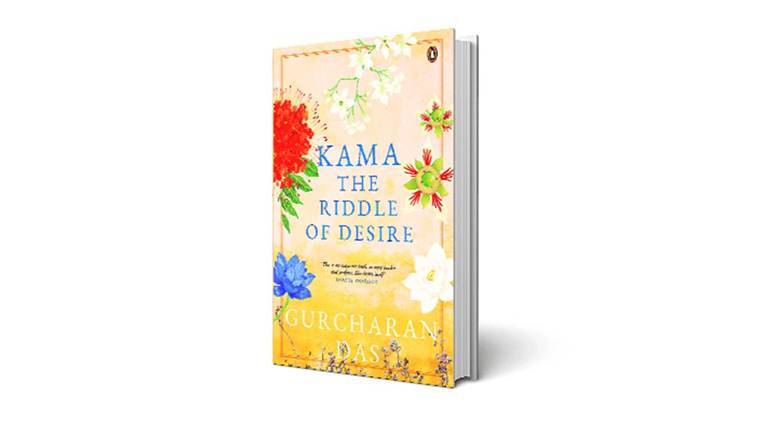
An engaging account that goes beyond sex and sexuality to explore desire in the contemporary Indian social order
Given my feminist orientation, any book on "desire" would strike alarm bells, and when it is with reference to the Kamasutra, one may worry about the exoticisation of the erotic. Gurcharan Das's book came as a pleasant antidote to the usual commodification of women in such a text. While the Kamasutra is a running thread, Das presents its critique in terms of a modern, gender-just outlook. A fascinating narrative, it weaves the story of Amar, the protagonist, into a philosophical journey through Western and Eastern authors and books on "desire" — Ramayana, Mahabharata, Bharatrihari, Gita Govinda, Kalidas, Proust, Tolstoy, Balzac, and Shakespeare, to name a few. For Das, the Kamasutra appealed as a "metaphor" for a changing and modern India, when it was "possible to harbour feminist hopes in the 1960s", furthered by the decolonising of the mind brought in by economic reforms of the 1990s. (p.194) Let me approach the book as fiction — the greatest kind that speaks for an era of social transformation.
Its narrator, Amar, is in his seventies, and says, rather charmingly, "In the autumnal vanaprastha of my life…I have become more and more accepting of human weaknesses. When I ought to be thinking of retiring to the tranquillity of a forest to contemplate, I remain incurably ensnared in the city's temptations. Women are still an enigma to me. I am attracted, not to a single woman, but to every woman who is young, affectionate, charming and voluptuous" (183). The narrator calls himself a "nagaraka" — a city sophisticate with refined sensibilities (p.116). Most locations are in Bombay and Delhi, and track developments from the 1960s to the turn of the century. As Amar goes through the phases of adolescent infatuation, romantic love, jealousy, revenge, marriage, adultery, reconciliation, and, eventual quiescence, the philosophy of desire — that intriguing subject — is discussed through its vast literature. One may call it a process of osmosis, so seamless is the plot created by the author.
Das explains throughout that kama is both desire and pleasure, and pleasure can be of all kinds, not just sexual. One of the great sources of pleasure in human life is friendship (p.202), and this I find is an endearing part of the text. Friendship in Aristotle's term is philia. "The obvious difference between eros and philia is that one has sex with one's eros/lover, not with one's philia/friend," says Das (p.202). Amar discovers true friendship with Avanti, a middle-class woman oozing confidence and singleness who nonetheless agrees to a companionate marriage with Amar, which has its own travails.
It is no surprise that Das, having written on artha and dharma, now places kama within the contemporary social order. The principles of dharma and kama are to be reconciled, according to Vatsyayan, and, in its modern manifestation, the author seeks to remind us of the classical values of harmony, restraint and balance (p.218). In the novelistic construction, I was enchanted by Kamini mausi, who, like Vatsyayan's ganika, instructs Amar on the conduct of good living. She and Ramu Mama — a happily married elderly couple, vibrant and wise, are his confidantes. A contrast with Western texts on desire in marriage is implied, for seldom do we come upon novels about happy matrimony. Virginia Woolf had once declared "the horror of marriage lies in its 'dailiness'" (p.263).
Das turns to India's prototype of illicit passion, to the mythic lore of Radha and Krishna, invoked through Jayadeva's Gita Govinda. Legends have no interest in Radha before she meets Krishna, or after He leaves Vrindavan. So, my feminist interests are once again aroused and I want to know the woman who Radha was — not just the paramour of Krishna. Das writes exquisite commentary on the Gita Govinda teasing out the implications of the original Sanskrit. He mentions the triumph of Radha, not her abjection. It is said that when Krishna asked for Radha's forgiveness, words failed Jayadeva and he left his manuscript unfinished. Returning from a ritual bath Jayadeva found the words inscribed by a divine author.
Kama is a book that focuses on the continuities and disjunctions in the history of "desire" in a thoughtful and engaging manner. It could have been a treatise, instead it's a philosophical opus — a grand novel with a gentle message of acceptance. Not unlike Michel Foucault's History of Sexuality, which is a study of Western concepts, Das's unique success is to tell the Indian story of "desire" which is much beyond sexuality.